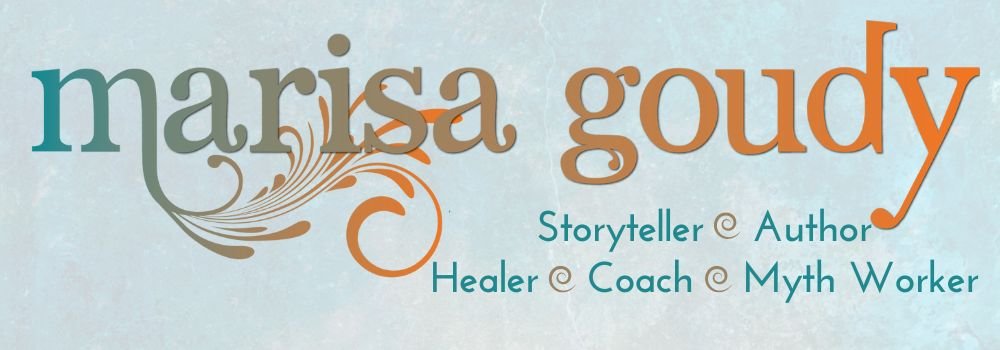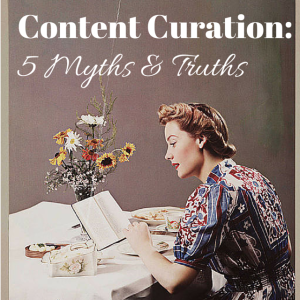
Sovereign Standard, Issue 16
Well, that was unexpected: entrepreneurship = a soul crushing experience
 So many working artists and self-employed creatives are feeling the crush of entrepreneurship. It’s not the long hours or even the uncertainty that gets them. It’s the assumption that the goal has to be "build something bigger than you." They're told that success equals developing something that scales and sells.
So many working artists and self-employed creatives are feeling the crush of entrepreneurship. It’s not the long hours or even the uncertainty that gets them. It’s the assumption that the goal has to be "build something bigger than you." They're told that success equals developing something that scales and sells.
Why have so many impassioned, independent souls got caught up in “make it bigger” even though that set them up for the dreaded “not enough” trap?
Because we mixed our creative passions with the reality of making a living. Instead of realizing a holistic vision of create-work-live, we've brewed up an unpalatable concoction that just isn't nourishing and definitely isn't sustainable.
Trying to make one sweeping entrepreneurial venture hold the creative dreams and the professional drive left them with too little time to create, too little in the bank account, and stuck in a chronic state of “not-enoughness.”
Oh, am I slipping into collective nouns here? I’m daring to speak for others on this because so many readers - lets be specific: so many women business artists* - responded to my latest post, Nutella on a Spoon (Or, Why Entrepreneurship Can Leave You Starving).
We are sick of trying to get the mix just right. We're too tired to contort ourselves to fit into the entrepreneurial container.
What creative women in business want
We want freedom of creative expression and the power to earn an independent livelihood.
We want to make something that matters and we want to make some money.
Here's the kicker: we're mature enough to recognize that we won't always be doing both things at the same exact time.
For some, "what you want" may really mean being an entrepreneur and building a company (particularly if you’ve got a gift for sales). On the other hand, it may mean freelancing. It may mean getting a J-O-B in order to recoup the emotional and mental energy that went into being in business for yourself.
Living and working like the creative-in-business you want to be may simply mean adjusting how you do business by offering the basic, “useful” services.
You’re downshifting from entrepreneurship into freelancing. It’s time to do the work that immediate rather than pioneering a visionary program or building a firm (at least for now).
This is why I am shifting my attention to offering the right people my copywriting services while the “real” work gestates in the dark for a while.
In any case, it's about looking closely at what's working and what isn't working and making decisions for the future based on what really matters - personal relationships, creative practice, and earning a living.
When “I quit entrepreneurship” doesn’t really mean “I quit business!” or "I reject my passion!"
Things haven't been working for you? Maybe it's time for the “I quit!” epiphany. It feels so liberating to smash those glass walls and peel back those labels that were hiding who you really are.
But what if the “I quit!” breakthrough doesn’t really mean you’re collapsing your stall in the marketplace? What if abandoning entrepreneurship doesn’t mean you’re taking a vow of poverty or trying to remember how to draft a resume?
What if "I quit creative entrepreneurship" simply means that you're no longer forcing creativity to grow in the same container as the work you do for money?
You might be like Jennifer Boykin who boldly declared she’s quitting her Life After Tampons project. Really, it seems she’s rebirthing her relationship with her creation and finding a way to detangle her passion work from her purse strings.
The Wild and Wise Women Over 45 who love Jennifer's work will not see her as quitter even as she frees herself from the chore of building a business venture that didn't serve her. She's still going to show up, but she's not going to pressure her passion with the needs of her pocketbook.
My "entrepreneurial crisis" has been a personal one. I think Jennifer's was too. Many women are sharing their own stories about why the "e" word doesn't fit and how they're reframing the relationship between the creative work and the paid work.
Is your entrepreneurship problem actually about the relationship between life, art, and work?
My business woes were not about being self-employed. They were about how the “go big” entrepreneurial imperative was squeezing out what really mattered - being present when I was home with my kids, devoting myself to the real creative work, and earning the money to replace the steady income I abandoned five years ago.
Here’s the good news:
If you structured your business based on someone else's definition of success and basic misunderstanding of your own goals, you can readjust your course without tossing away everything you've worked to build.
When you make changes in your business in order to better suit yourself, most people will only notice that you seem happier all of a sudden. (They may also note you're wearing a new pair of shoes because you found a more reliable way to fill the bank account).
Big dreams got you into entrepreneurship. You're leaving entrepreneurship to preserve those dreams.
We know that many wise businesswomen feel trapped by their choice to mix creativity and entrepreneurship. The solution isn’t to abandon either. The answer - at least for me - is to decouple them.
Before you can mediate a peaceful split, however, you have to figure out why you hitched together your creative drive and the promises of entrepreneurship in the first place.
Big creative dreams like yours deserve a big, beautiful container, so you picked the grandest, most promising one you could find: entrepreneurship.
But then you realized that it takes a lot more than vision and passion to build and sustain a business that is bigger than you are. Marketing, staffing, bookkeeping (if you could even get to that level) takes more time and attention that you have right now. Most likely, you got distracted from your original creative dreams because you were scrambling to structure an organization.
What if the work you do for pay doesn’t have to hold all of your creative energies? Suddenly your professional venture doesn’t have to be so big.
Liberating the creative from the professional - at least for a little while - is how you create the right size container for your dreams, your responsibilities, and your financial realities.
This is how novels get written. This is how debt gets paid off. This is how happy women support their families - with love and presence as well as money for groceries and the college savings account.
And saying "no" to entrepreneurship may really be about saying "not right now." It's in the pause, in the freelancing or the day job that the signature approaches that make life more beautiful, bearable, and bold get created: in their own time by creative, practical beings who refuse to see their creative ambitions vanish in entrepreneurial smoke and mirrors.
***
* Deep bow to Jeffrey Davis for bringing the term "business artist" to the fore and for being the community creator who introduced me to so many of the brilliant women who make up my readership. Not convinced that you need to separate the creative from the entrepreneurial? Dive deep into Jeffrey's work, starting with this video - his approach to "business as unusual" may be exactly what you're looking for.



 Last fall, I wrote my way to the edges of my own mastery when I realized I couldn’t confidently complete the sentence “a good story is…”
Last fall, I wrote my way to the edges of my own mastery when I realized I couldn’t confidently complete the sentence “a good story is…”



